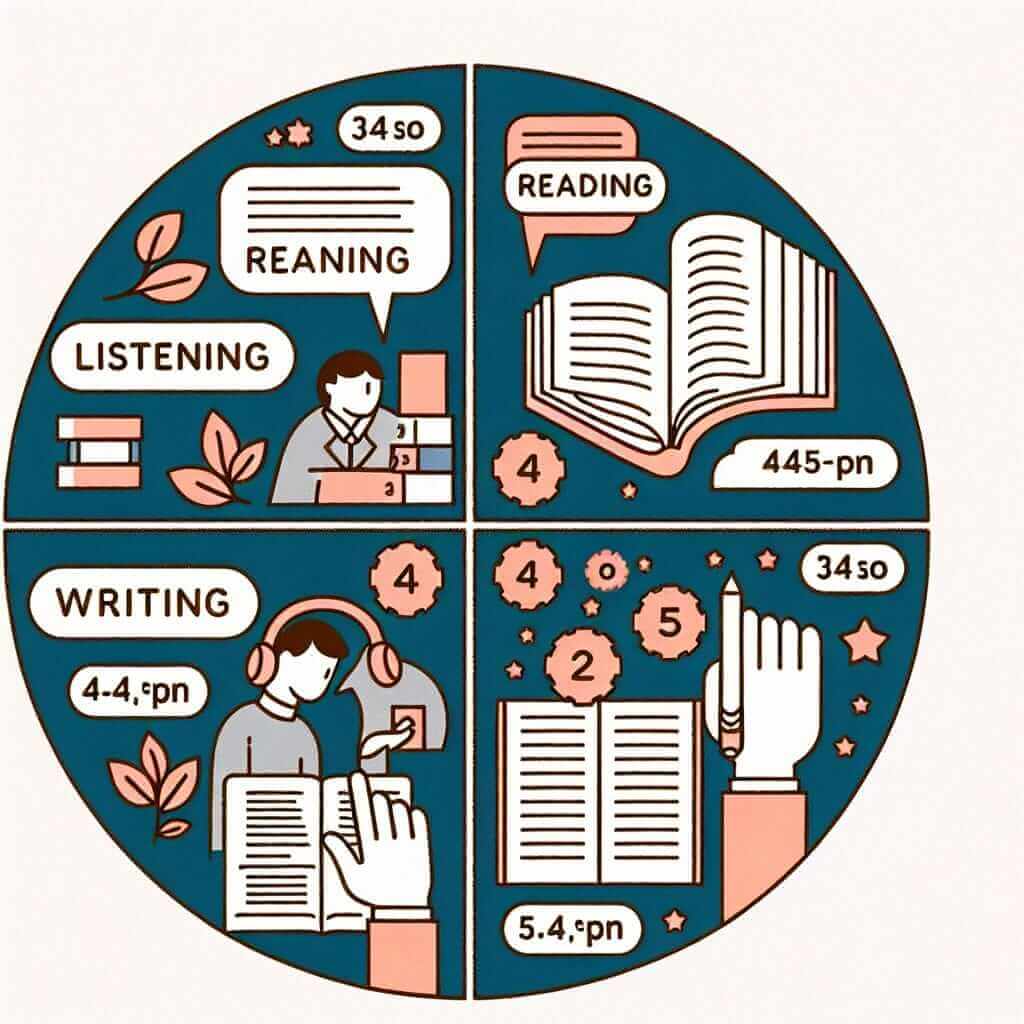As an IELTS instructor with over 20 years of experience, I’ve guided countless students on their journey to achieving their desired IELTS scores. The question I get asked most often is, “What is the best way to prepare for IELTS?” The truth is, there is no single magic formula. However, with a structured approach, dedicated effort, and the right strategies, you can significantly improve your chances of success. This comprehensive guide will provide you with the knowledge and tools to craft your personalized IELTS preparation plan.
Understanding the IELTS Exam
Before diving into preparation strategies, it’s crucial to understand the IELTS exam format and what it aims to assess. The IELTS (International English Language Testing System) is designed to evaluate your English language proficiency across four key skills:
- Listening: This section assesses your ability to comprehend spoken English in various contexts, including conversations, lectures, and announcements.
- Reading: This section tests your ability to understand written English in different formats, such as articles, reports, and academic texts.
- Writing: This section evaluates your written communication skills, including your ability to express ideas clearly, use appropriate vocabulary and grammar, and structure your writing logically.
- Speaking: This section assesses your spoken English fluency and coherence, vocabulary range, grammatical accuracy, and pronunciation.

Crafting Your Personalized IELTS Preparation Plan
The key to effective IELTS preparation is to create a personalized plan tailored to your strengths and weaknesses. Here’s a step-by-step guide to help you build your roadmap to success:
1. Assess Your Current English Proficiency
Before you begin, it’s essential to determine your current English language level. Taking a practice test is an excellent way to identify your strengths and weaknesses. Numerous free and paid practice tests are available online and in IELTS preparation books. Analyze your results to understand which areas require the most attention.
2. Set Realistic Goals and Deadlines
Once you have a clear understanding of your current level, set achievable goals and realistic deadlines for yourself. Having a target score and a timeframe in mind will keep you motivated and focused throughout your preparation.
3. Familiarize Yourself with the Test Format
Understanding the test format and question types is crucial for success. Familiarize yourself with the instructions, time limits, and marking criteria for each section. This will help you avoid surprises on exam day and manage your time effectively.
4. Develop a Consistent Study Schedule
Consistency is key to effective IELTS preparation. Create a realistic study schedule that fits into your daily routine and allocate sufficient time to each skill. It’s more effective to study regularly for shorter periods than to cram information in long, infrequent sessions.
5. Immerse Yourself in the English Language
Surround yourself with English as much as possible. Read English books, newspapers, and articles; watch English movies and TV shows; listen to English podcasts and music. This constant exposure will help improve your vocabulary, listening comprehension, and pronunciation.
6. Focus on Your Weak Areas
While it’s essential to maintain a balance across all four skills, dedicate more time and effort to the areas where you face the most challenges. For example, if writing is your weakness, focus on improving your grammar, vocabulary, and essay structure.
7. Practice, Practice, Practice!
The more you practice, the more confident and comfortable you will become with the IELTS exam format and question types. Utilize practice tests, sample questions, and past papers to familiarize yourself with the exam structure and identify areas for improvement.
8. Seek Feedback and Guidance
Feedback from experienced IELTS instructors can be invaluable during your preparation. An experienced tutor can provide personalized guidance, identify your weaknesses, and offer strategies to improve your performance.
9. Don’t Neglect Time Management
Time management is crucial during the IELTS exam. Practice answering questions within the allotted time limits to improve your speed and accuracy. During the exam, allocate your time wisely for each section to avoid rushing or leaving questions unanswered.
10. Stay Motivated and Positive
Preparing for the IELTS exam can be challenging, but it’s important to stay motivated and maintain a positive attitude. Celebrate your progress, focus on your goals, and don’t be discouraged by setbacks.
Example from Recent IELTS Exams
Here’s an example of a recent IELTS Speaking test cue card to illustrate the type of questions you might encounter:
Describe a time you had to wait in a long line/queue.
- When and where was it?
- Why did you have to wait in line?
- How long did you wait?
- How did you feel while waiting?
This question aims to assess your fluency, coherence, vocabulary range, and grammatical accuracy. Remember to elaborate on your answers, provide specific examples, and maintain a natural flow of speech.
Top Tips for Success
- Start early: Don’t wait until the last minute to begin your preparation. The earlier you start, the more time you’ll have to improve your skills.
- Be consistent: Regular practice is crucial for success. Make studying a part of your daily routine.
- Don’t be afraid to ask for help: Seek guidance from experienced IELTS instructors or join study groups to enhance your preparation.
- Stay positive: Believe in yourself and your ability to succeed. Maintaining a positive mindset can significantly impact your performance.
Conclusion
Preparing for the IELTS exam requires time, effort, and a strategic approach. By understanding the test format, crafting a personalized study plan, and utilizing the tips outlined in this guide, you can significantly enhance your chances of achieving your desired IELTS score. Remember, consistent practice, dedication, and a positive attitude are the keys to unlocking your full potential. Good luck!